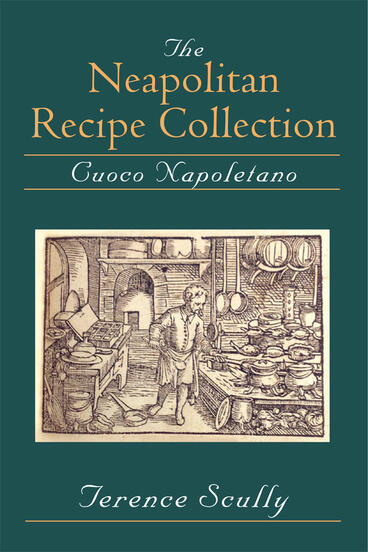The Neapolitan Recipe Collection
Cuoco Napoletano
Feasting as a window into medieval Italian culture
Description
The fields of cookery and medieval food continue to draw the attention of those interested in a panoramic picture of aristocratic and bourgeois social life in the late Middle Ages. In the fifteenth century, wealthy courts in the Italian peninsula led all of Europe in gastronomical achievement. The professional cooks in the service of the Este, Medici, and Borgia families were the most advanced masters of their craft, and some of them bequeathed a record of their practice in manuscript collections of recipes.
Outstanding among these early cookbooks is the one written by an anonymous master cook in Naples toward the end of the century. In its 220 recipes, one can trace not only the Italian culinary practice of the day but also the very refined taste brought by the Catalan royal family when they ruled Naples. This edition—with Terence Scully’s introduction touching on the nature of cookery in the Neapolitano Collection, and English translation of and commentary on the recipes—will give the reader a glimpse into the rich fare available to occupants and guests of one of the greatest houses of late medieval Italy.
The Neapolitan Recipe Collection offers a particularly delicious slice of the primary documentation necessary for understanding the nature of medieval society and one of its most important aspects.
Terence Scully is Professor Emeritus of French, Wilfrid Laurier University, and the author, with D. Eleanor Scully, of Early French Cookery (University of Michigan Press, 1996).

